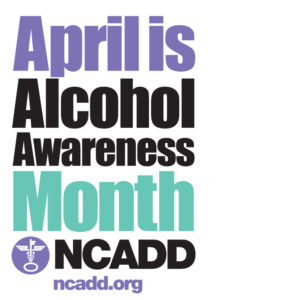The National Institute on Alcohol Abuse and Alcoholism (NIAAA) reports that an estimated 16 million Americans meet the criteria for alcohol use disorder. In 2015, 9.8 million men, 5.3 million women, and an estimated 623,000 adolescents (12–17) had AUD. You can see that alcohol use is affecting the lives of far too many people; and given that most people who are struggling with mental illness, like addiction, do not receive the care required for recovery—their lives will only get more chaotic. Opioids are the primary focus of lawmakers and health experts when it comes to substance use and abuse these days, and for more than a decade now. If you consider that far more people succumb to alcohol-related illness each year than opioids, you may find yourself wondering why we are not having more conversations about alcoholism?
Research appearing in the New England Journal of Medicine in 2017 indicates that more than 2 million Americans are grappling with an opioid use disorder (OUD). It stands to reason that this number will continue to grow before it shrinks unless more significant efforts are taken to educate people about the risks (addiction and overdose) of prescription painkillers and to use any form of opioid narcotic. There are more than 64,000 drug overdose deaths estimated in 2016, but an estimated 88,000 people (approximately 62,000 men) die from alcohol-related causes annually.
Opioids are and should be a critical concern across the nation; although, we must never lose sight of the dangers of using other mind-altering substances, especially those that are legal to use under federal and state law. Permission to use isn’t an endorsement for safety; mental illness pays no mind to the often arbitrary laws of humankind.
Alcohol Awareness Month
Education is the most significant tool for preventing alcohol use. Even though young people are pretty much guaranteed to flirt with alcohol at some point during adolescence, teaching them about the dangers of heavy and continuous use could lead many to make more responsible choices. Having all the facts can spare people from forming unhealthy relationships with substances and prevent countless people from developing a use disorder.
It is equally vital that steps are taken to encourage individuals who are already struggling with alcohol use disorder to seek assistance in the form of treatment. The stigma of addiction has gone on for far too long, at a terrible cost to millions of families. Let it be known, whenever possible, that alcohol and substance use disorder is not a moral failing, a deficiency in willpower, or a lack of a constitution. There is no fault to place on people, any more than you would blame a person with diabetes for having too much sugar in their blood. What’s more, addiction, like diabetes, has no known cure but can be managed provided that people are given the resources to do so in an effective manner.
April is Alcohol Awareness Month. The event is sponsored by the National Council on Alcoholism and Drug Dependence, Inc. (NCADD). For more than 30 years, organizations and addiction experts have taken the opportunity to support public awareness about alcohol, reduce stigma, and encourage local communities to focus on alcoholism and alcohol-related issues. If people are better able to identify the signs of addiction and understand that treatment can spare them from unnecessary heartache and physical harm, they are far more likely to seek help. When society views individuals with compassion rather than stigma, they are more apt to reach out for assistance.
NCADD Message to Parents
Alcohol Awareness Month is also relevant to teenagers, as well. It is not that uncommon for alcohol-related problems to arise during adolescence or a little further down the road in young adulthood. It is crucial that parents do everything in their power to prevent their children from forming unhealthy relationships with alcohol; that includes doing away with the misguided notion of parental provisional alcohol use. There is no evidence that parents supplying teens with alcohol leads to responsible use, but there is evidence to the contrary.
The theme of Alcohol Awareness Month this year is “Changing Attitudes: It’s not a ‘rite of passage.’” Local, state and national events aim to educate parents about the vital role they can play in helping their children understand the impact that alcohol can have on their lives. If you would like more information on events this April, please click here.
Alcohol and drug use is a very risky business for young people,” says Andrew Pucher, President and CEO of NCADD, “and parents can make a difference. The longer children delay drinking and drug use, the less likely they are to develop any problems associated with it. That’s why it is so important to help your child make smart decisions about alcohol and drugs.
Alcohol Use Disorder Treatment
If alcohol is impacting your life in negative ways and you find it seemingly impossible to abstain for any length of time, there is a high likelihood that you meet the criteria for an alcohol use disorder. At PACE, we specialize in the treatment of young men caught in the vicious cycle of self-destructive and self-defeating behaviors that typify alcoholism. Please contact PACE Recovery Center to learn more about how we can help you begin the process of healing and learn how to lead a productive life in addiction recovery.



